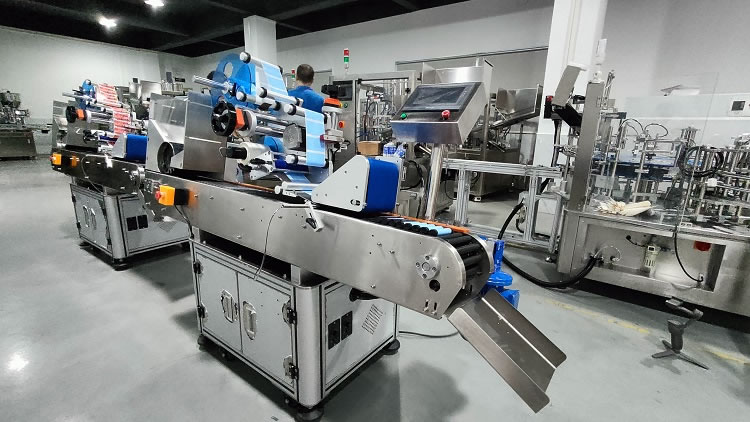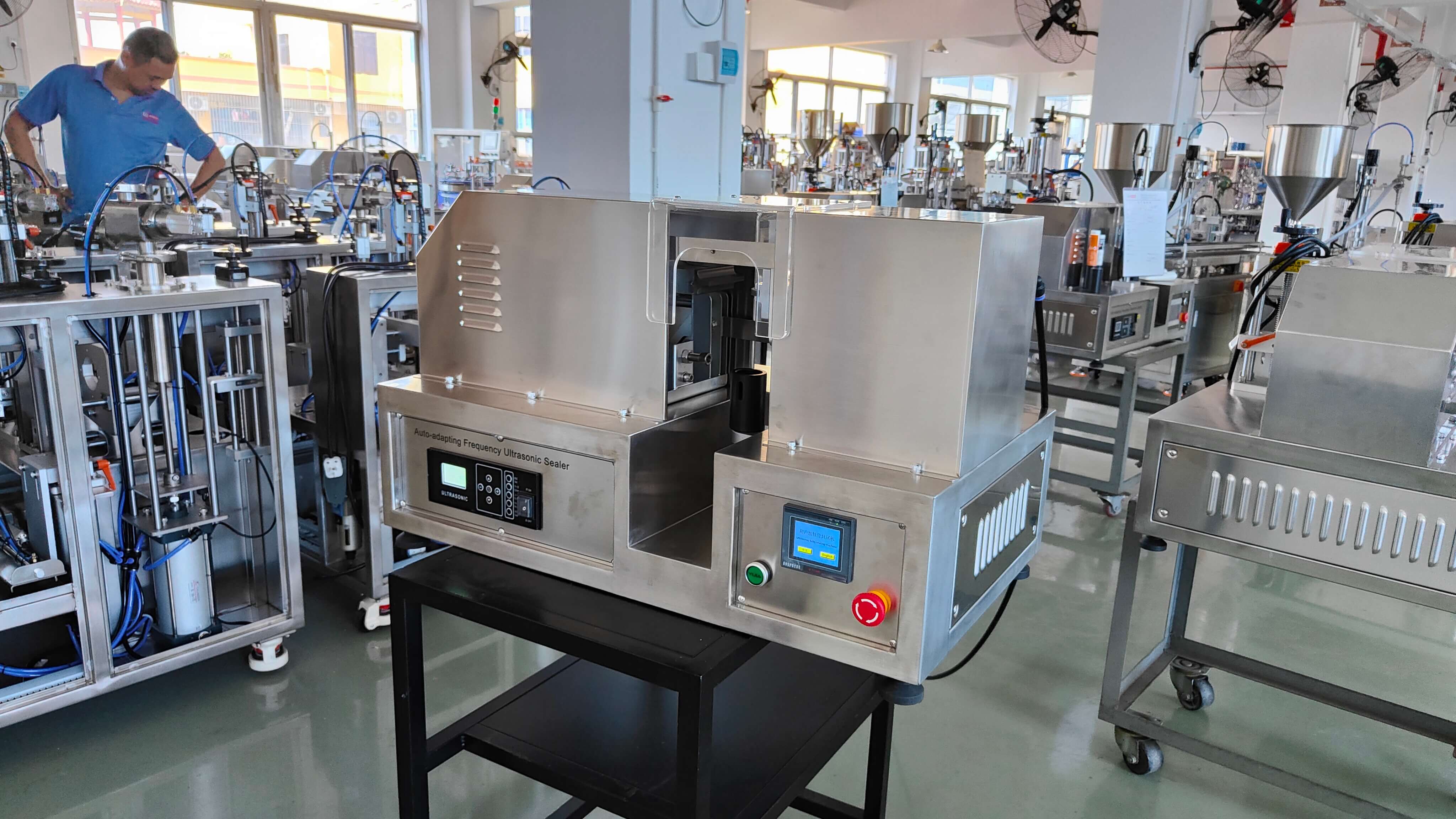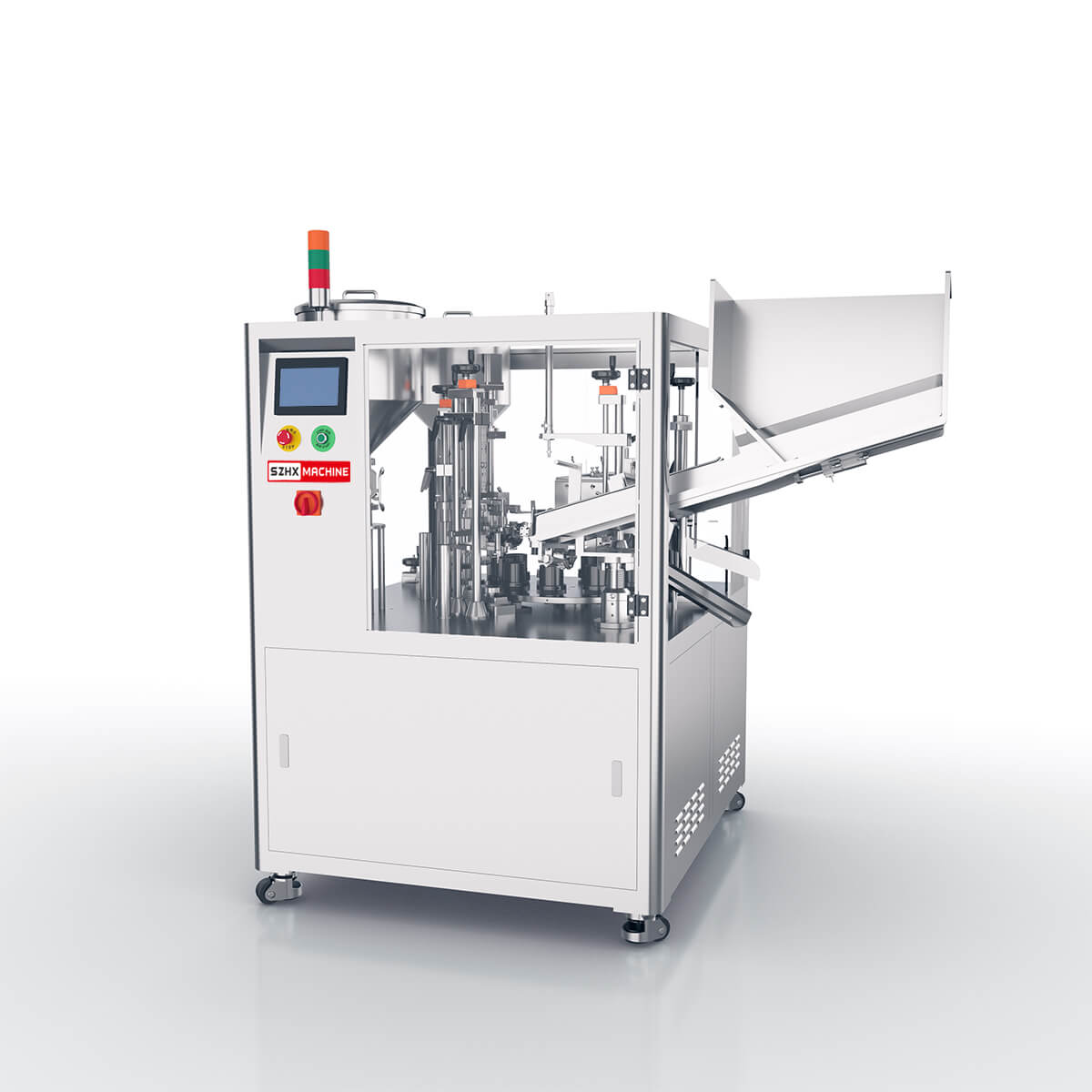What is a Labeling Machine Used For?
Introduction
In the complex world of manufacturing, where efficiency and precision are paramount, labeling machines play a critical role. These machines are indispensable tools across various industries, ensuring that products are properly identified, branded, and compliant with regulations. This article delves into the myriad uses of labeling machines, exploring their functions, applications, and the technological advancements that continue to shape their evolution.

Understanding Labeling Machines
Definition of a Labeling Machine
A labeling machine is an automated device used to apply labels to products, packaging, or containers. These labels can include anything from brand logos and product names to barcodes, nutritional information, and regulatory details. Labeling machines are designed to work with various types of labels and adhesives, ensuring that they adhere smoothly and securely to different surfaces.
Historical Evolution of Labeling Machines
The development of labeling machines has been driven by the need for faster and more efficient production processes. Early labeling was done manually, a time-consuming and error-prone process. As industries grew, so did the demand for more reliable labeling solutions, leading to the invention of mechanical and, eventually, fully automated labeling machines. Today, these machines are sophisticated, capable of handling high-speed production lines and delivering precise, consistent results.
Types of Labeling Machines
Pressure-Sensitive Labeling Machines
Pressure-sensitive labeling machines are among the most common types used today. They apply labels that are pre-coated with an adhesive, which is activated by the application of pressure. These machines are highly versatile, capable of labeling products of various shapes and sizes, making them a popular choice across multiple industries.
Hot Melt Glue Labeling Machines
Hot melt glue labeling machines use a heated adhesive to apply labels to products. The glue is melted and applied to the label, which is then affixed to the product. This method is particularly effective for products that require a strong, durable bond, such as in the beverage industry, where labels must withstand moisture and varying temperatures.
Cold Glue Labeling Machines
In contrast to hot melt systems, cold glue labeling machines use a liquid adhesive that is applied at room temperature. This method is often used for paper labels, particularly in the food and beverage industry. Cold glue labeling is cost-effective and provides a strong bond, though it is slower than pressure-sensitive and hot melt systems.
Heat Shrink Sleeve Labeling Machines
Heat shrink sleeve labeling machines apply labels that are initially loose-fitting but shrink to the product’s contours when heat is applied. This type of labeling is ideal for products with unique shapes or those requiring 360-degree label coverage. Heat shrink labels are widely used for beverages, personal care products, and household chemicals.
Wrap Around Labeling Machines
Wrap around labeling machines are designed to apply labels that completely encircle the product, typically bottles or cans. These machines are essential in industries where full coverage labeling is required, such as in food and beverage or pharmaceuticals. Wrap around labeling provides maximum branding space and ensures that essential information is prominently displayed.
Core Functions of Labeling Machines
Application of Labels to Various Products
The primary function of a labeling machine is to apply labels to products in a precise and consistent manner. This task, while straightforward in concept, is critical in maintaining the integrity of a product’s appearance and ensuring that all required information is visible to consumers.
Ensuring Consistency and Precision in Label Placement
One of the most significant advantages of using labeling machines is the consistency they offer. These machines are capable of applying labels with high precision, ensuring that every product in a batch is labeled identically. This uniformity is crucial for brand recognition and regulatory compliance, as it ensures that labels are always in the correct position and orientation.
Handling Different Label Materials and Adhesives
Labeling machines are designed to work with a wide range of label materials and adhesives. From paper and plastic to foil and fabric, these machines can handle various materials, applying them securely to products. They are also adaptable to different adhesive types, including pressure-sensitive, hot melt, and cold glue, ensuring that labels adhere properly regardless of the product or packaging material.
Industry Applications of Labeling Machines
Use in the Food and Beverage Industry
Labeling machines are extensively used in the food and beverage industry, where they apply labels that include nutritional information, ingredients, barcodes, and branding elements. These labels must be applied with precision to ensure compliance with industry regulations and to maintain product appeal on store shelves.
Labeling in the Pharmaceutical Sector
In the pharmaceutical industry, labeling machines play a vital role in ensuring that medications are properly identified and packaged. These labels often include critical information such as dosage instructions, expiration dates, and batch numbers. Precision is essential in this sector, as incorrect labeling can have serious legal and health implications.
Applications in the Cosmetics Industry
The cosmetics industry relies heavily on labeling machines to apply branding and product information to various packaging formats, from tubes and bottles to jars and boxes. These labels not only enhance the product’s aesthetic appeal but also provide essential information such as ingredients and usage instructions, which are crucial for consumer safety and satisfaction.
Role in Chemical and Household Product Labeling
Labeling machines are also used in the chemical and household product sectors, where they apply labels that include safety warnings, usage instructions, and regulatory compliance information. These labels must be durable and resistant to factors such as moisture, heat, and chemicals to ensure that they remain legible and intact throughout the product’s lifecycle.
Importance of Labeling in Product Packaging
Enhancing Brand Recognition and Visibility
Labels are a key component of product packaging, serving as the primary medium for brand communication. A well-designed label can significantly enhance brand recognition and visibility, making it easier for consumers to identify a product on store shelves. Labeling machines ensure that these labels are applied consistently, maintaining the brand’s integrity across all products.
Providing Essential Product Information
Labels provide consumers with essential information about the product, including its ingredients, usage instructions, and any warnings or safety precautions. This information is crucial for ensuring that consumers use the product safely and correctly. Labeling machines ensure that this information is clearly and accurately presented on every product.
Ensuring Compliance with Regulatory Requirements
In many industries, products are required to carry specific information on their labels to comply with regulatory standards. This information can include anything from nutritional content and allergens in food products to safety warnings and usage instructions for pharmaceuticals and chemicals. Labeling machines play a crucial role in ensuring that products are labeled in accordance with these regulations, helping manufacturers avoid legal issues and maintain consumer trust.
Technological Advancements in Labeling Machines
Integration of Automation and AI
The integration of automation and artificial intelligence (AI) in labeling machines has revolutionized the industry. Automated labeling machines can operate at high speeds, applying labels with precision and consistency, while AI algorithms can optimize the labeling process by adjusting settings in real-time based on data collected during production. These advancements have significantly increased the efficiency and accuracy of labeling operations.
Development of Smart Labeling Systems
Smart labeling systems are another technological advancement that is transforming the industry. These systems use digital technology to encode information directly onto labels, such as barcodes, QR codes, and RFID tags. This information can be used for tracking and tracing products throughout the supply chain, enhancing transparency and improving inventory management.
Enhancements in Labeling Speed and Accuracy
As production lines become faster and more complex, the need for high-speed labeling machines has grown. Modern labeling machines are capable of applying labels at incredibly high speeds without sacrificing accuracy. This is achieved through the use of advanced sensors and control systems that ensure labels are applied in the correct position, even at high speeds.
Customization and Flexibility in Labeling
Tailoring Machines for Different Label Shapes and Sizes
Labeling machines are highly customizable, allowing manufacturers to tailor them to their specific needs. Whether it’s applying small labels to cosmetic bottles or large wrap-around labels to beverage cans, these machines can be adjusted to accommodate different label shapes and sizes. This flexibility is crucial for manufacturers that produce a wide range of products.
Adapting to Various Packaging Formats
In addition to handling different label sizes and shapes, labeling machines must also adapt to various packaging formats. From round bottles and square boxes to irregularly shaped containers, modern labeling machines are designed to apply labels accurately to a wide variety of packaging types. This adaptability is essential for manufacturers that need to label products with unique or unconventional packaging.
The Role of Modular Labeling Machines
Modular labeling machines offer even greater flexibility by allowing manufacturers to add or remove components as needed. This modularity enables companies to customize their labeling machines for different production runs, making it easier to switch between products and packaging formats. It also allows manufacturers to upgrade their machines over time, adding new capabilities as their needs evolve.
Challenges in Labeling and How Machines Address Them
Dealing with High-Speed Production Environments
One of the biggest challenges in labeling is maintaining accuracy at high production speeds. As production lines accelerate, the risk of misaligned or improperly applied labels increases. Labeling machines address this challenge by using advanced control systems and sensors to ensure that labels are applied correctly, even at high speeds. These systems can detect and correct issues in real-time, minimizing the risk of errors and ensuring that labels are applied consistently.
Ensuring Adhesion on Different Surfaces
Another challenge in labeling is ensuring that labels adhere properly to different surfaces. This is particularly important for products with non-standard or difficult-to-label surfaces, such as those made from textured or curved materials. Labeling machines address this challenge by using specialized adhesives and application techniques that ensure a strong bond, regardless of the surface material.
Maintaining Label Quality and Durability
Label quality and durability are critical factors in ensuring that labels remain legible and intact throughout the product’s lifecycle. Labeling machines play a key role in maintaining label quality by applying them with the right amount of pressure and using the appropriate adhesive for the material. They also ensure that labels are applied without wrinkles, bubbles, or other defects that could compromise their durability.
Choosing the Right Labeling Machine for Your Needs
Assessing Production Volume and Speed Requirements
When choosing a labeling machine, one of the first factors to consider is the production volume and speed requirements of your operation. High-volume production lines require labeling machines that can keep up with the pace, applying labels quickly and accurately without causing bottlenecks. On the other hand, smaller operations may prioritize flexibility and ease of use over sheer speed.
Considering Label Types and Packaging Formats
Another important consideration is the type of labels and packaging formats you will be working with. Different labels, such as pressure-sensitive or heat shrink, require different application methods, so it’s important to choose a labeling machine that is compatible with the labels you use. Additionally, consider the variety of packaging formats in your product line and whether the labeling machine can accommodate them.
Evaluating Machine Versatility and Scalability
Versatility and scalability are also important factors to consider when choosing a labeling machine. A versatile machine can handle a wide range of labels and packaging formats, making it a valuable asset for manufacturers with diverse product lines. Scalability is equally important, as it allows you to upgrade or expand your labeling capabilities as your business grows. Look for machines that offer modular components or the ability to integrate with other production systems.
Maintenance and Upkeep of Labeling Machines
Routine Maintenance Tasks for Optimal Performance
Regular maintenance is essential for keeping your labeling machine running smoothly and efficiently. Routine tasks include cleaning the machine’s components, checking for wear and tear, and calibrating sensors and controls to ensure accurate label placement. By performing these tasks regularly, you can prevent costly breakdowns and extend the lifespan of your labeling equipment.
Importance of Timely Repairs and Part Replacements
In addition to routine maintenance, it’s important to address any issues that arise promptly. This includes repairing or replacing worn or damaged parts, as well as troubleshooting any problems with the machine’s operation. Timely repairs and part replacements are crucial for minimizing downtime and maintaining production efficiency.
Tips for Extending the Lifespan of Labeling Equipment
To get the most out of your labeling machine, it’s important to take steps to extend its lifespan. This includes following the manufacturer’s maintenance guidelines, using high-quality labels and adhesives, and ensuring that the machine is operated by trained personnel. By taking these steps, you can maximize the return on your investment and ensure that your labeling machine continues to perform at a high level for years to come.
Future Trends in Labeling Technology
Growth of Eco-Friendly Labeling Solutions
As sustainability becomes an increasingly important consideration in manufacturing, the demand for eco-friendly labeling solutions is growing. This includes the use of biodegradable and recyclable labels, as well as labeling machines that are designed to minimize waste and energy consumption. As these trends continue to gain momentum, manufacturers that prioritize eco-friendly labeling will be better positioned to meet consumer demand and regulatory requirements.
Rise of Digital and Laser Labeling Machines
Digital and laser labeling machines are emerging as key players in the future of labeling technology. These machines offer high precision and flexibility, allowing manufacturers to create custom labels on demand and apply them with unmatched accuracy. Laser labeling, in particular, offers the advantage of being able to label products without the need for physical labels, reducing material costs and waste.
Anticipating the Next Innovations in Labeling
As technology continues to advance, the labeling industry is likely to see even more innovations in the coming years. This could include the development of more sophisticated smart labeling systems, the integration of blockchain technology for enhanced traceability, and the continued evolution of AI-driven automation. Manufacturers that stay ahead of these trends will be well-positioned to capitalize on the opportunities they present.
Conclusion
Labeling machines are essential tools in modern manufacturing, playing a critical role in ensuring that products are properly identified, branded, and compliant with regulations. From applying labels with precision and consistency to adapting to different packaging formats, these machines offer a wide range of benefits that are crucial for maintaining efficiency and quality in production. As technology continues to evolve, labeling machines will only become more advanced, offering new capabilities and opportunities for manufacturers to improve their operations.



